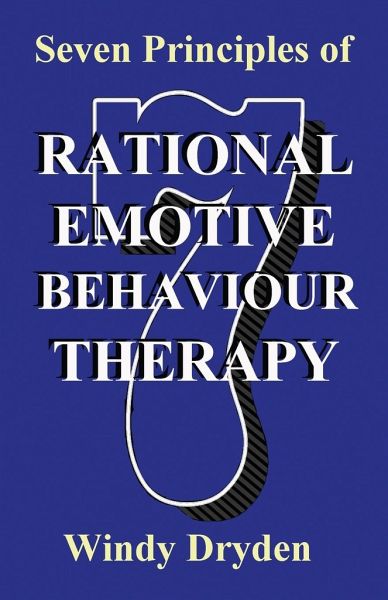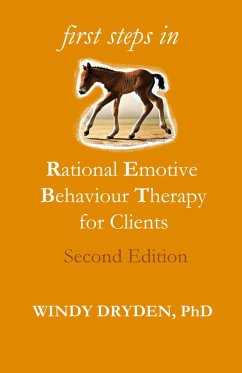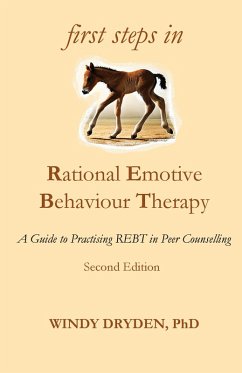
Seven Principles of Rational Emotive Behaviour Therapy
Versandkostenfrei!
Versandfertig in 1-2 Wochen
12,99 €
inkl. MwSt.

PAYBACK Punkte
6 °P sammeln!
In this book, Professor Dryden outlines seven core principles of Rational Emotive Behaviour Therapy. Arguing that effective REBT is based on the development and maintenance of a good working alliance, Professor Dryden states that the REB therapist first needs to encourage the client to assume emotional responsibility and see that their problems are underpinned by a set of rigid and extreme attitudes which need to be changed. Professor Dryden emphasises that effective REBT is also based on an accurate adversity-based assessment of the client's problems and on goal-setting that acknowledges that...
In this book, Professor Dryden outlines seven core principles of Rational Emotive Behaviour Therapy. Arguing that effective REBT is based on the development and maintenance of a good working alliance, Professor Dryden states that the REB therapist first needs to encourage the client to assume emotional responsibility and see that their problems are underpinned by a set of rigid and extreme attitudes which need to be changed. Professor Dryden emphasises that effective REBT is also based on an accurate adversity-based assessment of the client's problems and on goal-setting that acknowledges that it is healthy to experience negative, but non-disturbed emotions about the adversities that feature in the client's problems. Perhaps the key task of the REB therapist is to promote attitude change as a way to help the client to solve their emotional problems and this is given due weight in this book. However, since REBT is flexible, the therapist needs to be able to promote different forms of change and deal with a range of client issues in therapy, those that reflect, disturbance, dissatisfaction and development.












